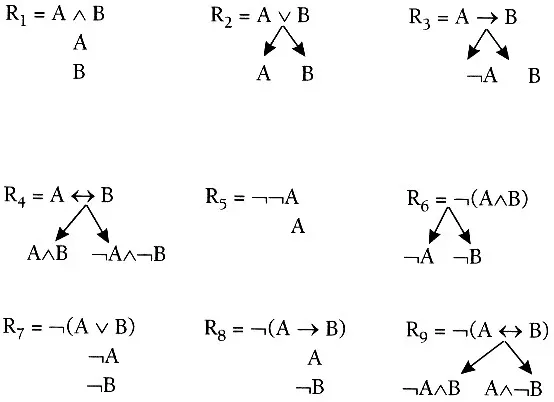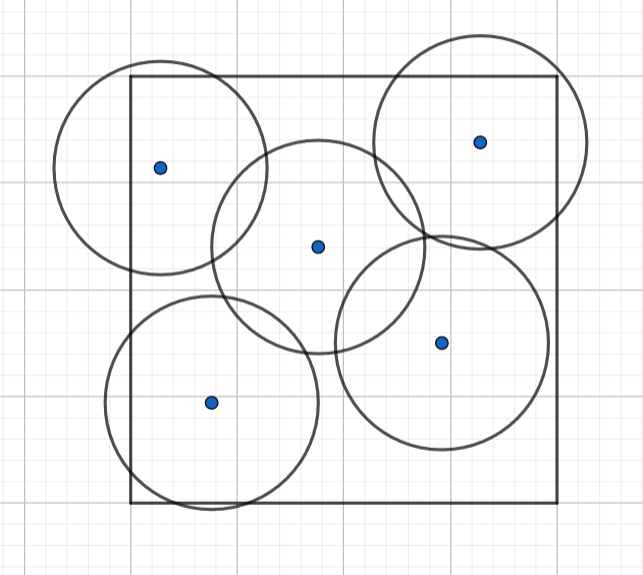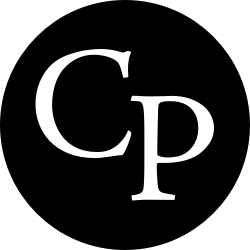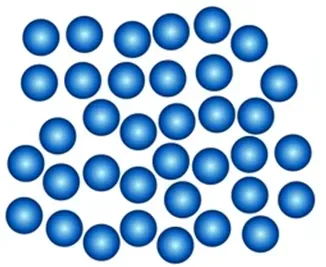The Limits of Logic
What happens when logic goes wrong?

What happens when logic goes wrong? Let’s see why the Law of the Excluded Middle is wrong (sometimes), discover foundational problems at the heart of Mathematics, before finally trying to resolve what’s going wrong.
You’ll also learn how to make sense of the negative root of -1, delve briefly into analysis, as well as proving all Cretans are liars only using logic.
Armed with a greater appreciation of logic, axioms and mathematics, we will show some flaws in Western Philosophy, particularly in Immanuel Kant’s notion of a priori truths (Epilogue III). In a beautiful twist, the conception of mathematics provided will coincide with the ideas of ‘différance’ provided by Derrida (Epilogue IV). There’s also a connection between logic and determinism in Epilogue V.
A Cretan Liar, circa 600 B.C.E
It was a hot day in Crete, and the Philosopher Epimenides was making mischief. He’d found a way to prove something with logic which, well, shouldn’t be provable with logic.
As an added plus, in those days he didn’t need to drudge through peer review, nor be an unpaid research assistant in his holidays. Below is a picture of Epimenides sharing his Philosophical discoveries with a potted plant.

‘All Cretans are liars. Merely by making this statement, I have deduced that that not all Cretans are liars!'
He proclaimed, to his potted plant. Here, by a liar, we mean someone who never tells the truth.
Well, what if his statement is true? Then we have a contradiction, because here is a Cretan who is telling the truth.
The Law of the Excluded Middle now swoops in. This Law states that a statement is either true, or its negation is true. We have just shown the statement cannot be true (as there would be a contradiction).
Wait one sec. Surely whether or not all Cretans are liars is a matter for historians and archaeologists to judge, not for us to deduce from logic alone??
This would be a funny superpower indeed. (If you want more detail on this paradox, see Epilogue II)
Unless… perhaps we made a false assumption in the Law of the Excluded Middle. Perhaps there are other options. But more on this later.
An aside on the subtleties of Logic
There’s two logical laws which are often conflated.
The Law of the Excluded Middle: a statement is true or its negation is truePrinciple of Bivalence: every statement is either true or false
Consider rolling a dice. The statement ‘I will roll a six’ is not (necessarily) true or false: it’s probabilistic. So the principle of bivalence fails. But LEM holds: the statement “I will roll a six or I will not roll a six” is a true statement.
Tremors in the Foundations of Mathematics
If you are a mathematician, this should ring alarm bells.
The Law of the Excluded Middle is pretty essential for mathematics. As Hilbert — a truly great mathematician — put it, ‘to take the law of the excluded middle away from the mathematician would be like denying the astronomer the telescope or the boxer the use of his fists’.
In mathematics we deal with such abstract statements, it is easier to prove that if something weren’t true we have a contradiction, than to actually construct the thing in question.
The founder of (rigorous) intuitionist mathematics, Brouwer, decided in later life that his earlier discoveries in Topology were invalid because of their use of proof by contradiction.
Here’s an example, but feel free to skip it if it is an obstruction to understanding the broader article. I’ve put the example in a quote box to help skip if you want.
For instance, consider a rectangular box.
You are going to throw darts whichi land within the box. Every time a dart lands, you draw a circle of the same radius around the point. For instance, you might choose a radius of 0.1cm to draw around every dart.
If we continue like this, how do we prove that after a finite number of throws we have covered the entire rectangular dart board with the circles drawn?

It seems obvious that it is true for the box. But we want to prove it is true for any shape with certain properties, with the technical name of compactness. This shape might even be infinite dimensional — try visualising that!
With the law of the excluded middle, the proof is ‘simple’. We assume that we can pick points indefinitely.
We can then use a well known result that if we throw an infinite number of darts into a compact space, like the box, we can pick a sequence of darts which get arbitrarily close. But this is a contradiction, because the points are picked to be more than a fixed radius (say, 0.01 as before) apart. Thus, assuming the statement is false, we get a contradiction. So we deduce that the statement is true.
Done. Q.E.D. Finis.
But how would you do this without the Law of the Excluded Middle?
Mathematics is hard enough already without making it even harder!
A second brief aside on the technicalities of logic
Another important distinction is between the Law of Non Contradiction and the Law of the Excluded Middle.
Law of the Excluded Middle: the statement (P or not P) is true. Law of non contradiction: (P and not P) is false.
If you are baking a cake, and it is partially cooked, you may not want to affirm that it is, currently, a cake, but neither say that it is not a cake. Instead, it is in some intermediate state.
So while we aren’t allowing contradictory things to coexist, we aren’t limiting our categories as much to describe reality. We allow our categories to be slightly fuzzy.
Intuitionism and Baking a Cake
It is now probably clear that the problems in logic are inescapably tied to baking.
That’s a lie, they’re actually inescapably tied to mathematics.
The Intuitionist mathematicians, led by Brouwer, argued that Mathematics consists of objects which are constructed by the mind.
Here we see that proving that
¬(¬P) (symbolically)not (not P) (in words)
is no longer a valid proof of P. I haven’t actually constructed the damn thing! In Brouwer’s opinion, you can’t assume there’s this abstract realm of mathematical statements with a true or false label attached. If this mystical realm existed (in some sense we can’t make head or tails of, see this article) then the construction approach would be unnecessary.
This is a bit abstract, so let’s imagine Hilbert is baking a cake. And Hilbert deduces, from the smell, that the statement ‘there is not a cake in the oven’ is false. And so, he happily starts to go and call everyone to dinner, because the cake is ready.
But Brouwer stops him, and says that the Law of the Excluded Middle doesn’t hold. Before he gets everyone gorging themselves on half-baked cake mix, he should open the damn oven and see whether it is a cake or not.
There is a chance, Brouwer acknowledges, that Hilbert is correct, but cautions that we cannot be sure until we see with our own eyes. Here’s me using some creative license.
Brouwer looked over at Hilbert with disdain. In his eyes, the German mathematician was stuffing his face full of raw, uncooked cake mix, licking and smacking his lips, and totally unaware of the mess on the table and on the floor.Hilbert thought Brouwer was mad. He would open the oven door so often to check if the cake was there that we'd never even have a cake. And besides, it's so sweet and so good - "mmmm, I think these are chocolate chips, you should really try some"
Hilbert actually viewed Brouwer as dangerous. And this makes sense — he thought Brouwer would forever derail the ability of Mathematicians to make cakes (proofs).
Intuitionism continued
You’re now well placed to understand that Brouwer is fine with the Law of Non Contradiction, but does not accept the Law of the Excluded Middle. His denial of this abstract mathematical realm where things have true or false attached to them leads him to deny the Principle of Bivalence too!
In Brouwer’s conception of mathematics, things must be built to exist. It is an entirely different conception of mathematics, which demands more of a proof. (Ie makes fewer assumptions)
This seems pretty weird, but remember the paradox at the beginning and it makes some sense. With Brouwer’s approach to mathematics applied to this thought experiment, truth is a constructive excercise. Thus, to show that all Cretans are liars, we have to ‘construct’ the proof by going through every statement ever made by a Cretan, and our asbtract logical proof was wrong.
If we wanted to put a label on this, we might say statements are true, false or indeterminate. This is a bit of a cop-out, as it labels the problem cases as indeterminate, but also seems to provide good categories for resolving this mess.
And it turns out that this is exactly what Brouwer did, something which I stumbled upon while editing. He used a many valued logic, with an ‘as yet undetermined’ section. If you’re really interested, you can read up on many valued logics
(In addition, my layman’s understanding is that experimental quantum physics indicates ‘indeterminate’ is part of reality as we know it. This was formalised by Von Neumann in his ‘Quantum Logic’.)
Intuitionism makes sense, but are you prepared to ditch modern mathematics?
Now that’s a tricky question. Because Intuitionism means ditching a vast amount of extraordinarily useful mathematics.
And there’s no way we’re gonna do that as long as Mathematics is ‘working fine’, aka producing results which can be used without contradictions popping up everywhere.
Some problems with intuitionism
The issue is that it’s not at all clear that mathematics is merely mental constructs. This is such a foundational question it’s hard to see how it can be treated as anything but an axiom, one way or another. That being said, proofs which construct the result always feel more certain than others.
My hunch is that reality is always messier than our categories. Brouwer may be right that proof by contradiction is not always valid, but it seems absurd to give it up everywhere. In our day to day life at least, for most sensible statements, the laws of classical logic hold. That’s why Aristotle made them!
We have no way of knowing a priori which categories are right, so have no choice but to improvise and fudge it, making adjustments when things go wrong. Using Brouwer’s reasoning the correct categories aren’t something which exist out there anyway, so this constructive process to choosing our axioms keeps the spirit of his approach.
The Real World and Mathematics
Mathematics looks at the logical deductions you can make given certain structures and axioms. It is when we apply it, that we breathe life into those categories and operations and axioms. And then we have the connection with Derrida (Epilogue IV), which came as much of a shock to me when I realised it as, I hope, it will come to you.
What is a number? It gets complicated (and then easy again)
Negative numbers don’t make much sense if you think numbers only stand for finite, integer, positive number of things in the world. E.g. 10 sheep, 6 children, 3 goats. Not -1 sheep.
But we define negative numbers as a structure, with operations and axioms, and suddenly we give meaning to these operations. That meaning might be the concept of debt, or might be the idea of going backwards on a line. Or the past. Or subtraction.
Likewise, the square root of negative -1, i, seems pretty abstract and like it doesn’t exist. (That’s what I thought at first)
But when you apply complex numbers to actual situations, you give the operations meaning. For instance, the modelling of physical phenomena with complex numbers in quantum physics, or the representation of complex numbers on a plane, where multiplication corresponds to a rotation and a change in radius. Here, the square root of negative 1 makes perfect sense, as multiplication has been extended in meaning and in purpose to have a rotational aspect. The point i has angle 90 degrees, and length 1. So, when we multiply a point z by i, we rotate it by 90 degrees, and scale the radius by 1
i² = -1, as the new angle is 90 + 90 = 180 degrees, and the new radius is 1 times 1.

So if the operations of classical logic seem reasonable in application in the real world, then the use of those on mathematical objects is also reasonable, provided we limit the domain of interpretation of what the mathematical object means.
Mathematics has been so focused on formalising the abstract connections within itself, it makes sense to also define the applicability of axioms to the real world.
Thus, whenever we use, say, Topology, to understand the real world, that comes with an understanding of the logical axioms needed.
Unanswered Questions
This may provide a satisfactory answer to Mathematics as it is used, but what about human curiosity? After all, there are statements within mathematics which relate to proofs within mathematics, and seem defined by this rather than given meaning through applications. Intriguingly, the biggest problems in set theory (and measure theory) comes from the creation of sets so wild and crazy that it is hard o see any resemblance to the real world. But in what sense can a set, intuitively a ‘collection of objects’ be disconnected from our understanding of the real world, ie the place where objects seem to exist?! Would a blind, deaf, mute person who had lost their smell and their taste and their touch (so just a mind without external input) be able to conceive of objects?
So the dilemma remains for the most abstract parts of mathematics.
I can’t think of an answer. But perhaps you can. So let me know in the comments! And if you can’t, then let me know in the comments anyway. It gives me an excuse to stop doing the statistical analysis I’d otherwise be doing right now. An Epilogue is below, but optional. It gives some final thoughts.
The author is an undergraduate studying Economics at Cambridge University. His passions include Mathematics, Philosophy, sub-mediocre music composition, making sub-sub-mediocre puns, finger painting, and writing bios of himself in the third person.
Epilogue I on logic
If there’s one lesson to be learned here, it’s to rethink our relationship with logic.
Logic, which should be a way to refine and formalise our categories and concepts (such as ‘true’ and ‘false’), has replaced them!
This is why we get so confused when first trying to understand the difference, say, between the Law of the Excluded Middle and the Principle of Bivalence. We ended up equating classical logic as the correct set of categories and way of viewing the world. If you doubt that the difference between these two can be confusing, I invite you to read this on Philosophy stack exchange.
In this light, it seems natural that there was some pushback against logic (*ahem, certain French Philosophers*), against the idea of simple, objective categories which capture all of reality. But the correct response must be to refine these — and I have given several examples of how — rather than to throw the baby out with the bathwater.
Epilogue II on the Cretan Paradox
This paradox is strongly linked to another paradox. This is because the crux of the issue is really whether he, Epimenedes, is a liar. After all, if he is not a liar, then not all Cretans are liars, as he is a Cretan.
The statement I am currently making is a lie.
Epilogue III: Kant
I can’t resist a quick poke here at Kant. He thought there were some self evident truths which we could then build our knowledge off. But we have learned that this is bollocks! It is totally unclear what the right assumptions are, and it is up to us to work them out from our preconceived knowledge of the world. He got it the wrong way round: you have to be able to assume some knowledge or understanding of the world to choose and refine your axioms. Rather than the perfect logical system necessarily existing, we have to reflect on what system suits our needs and which axioms are appropriate.
Or, in other words, the centuries long quest for pure philosophical truth created by reason alone is dead.
But that quest died long ago for other reasons. As Nietzsche puts it in Beyond Good and Evil
The eagerness and subtlety, I should even say craftiness, with which the problem of “the real and the apparent world” is dealt with at present throughout Europe, furnishes food for thought and attention; and he who hears only a “Will to Truth” in the background, and nothing else, cannot certainly boast of the sharpest ears. In rare and isolated cases, it may really have happened that such a Will to Truth — a certain extravagant and adventurous pluck, a metaphysician’s ambition of the forlorn hope — has participated therein: that which in the end always prefers a handful of “certainty” to a whole cartload of beautiful possibilities; there may even be puritanical fanatics of conscience, who prefer to put their last trust in a sure nothing, rather than in an uncertain something. But that is Nihilism, and the sign of a despairing, mortally wearied soul, notwithstanding the courageous bearing such a virtue may display.
Epilogue IV: Derrida and Mathematics
I was reading through an article on the Stanford Encyclopedia of Philosophy, and I was struck by a similarity between this conception of mathematics and some ideas of Derrida.
For Derrida, written marks or signifiers do not arrange themselves within natural limits, but form chains of signification that radiate in all directions. As Derrida famously remarks, “there is no outside-text” (Derrida 1974 [1967], 158), that is, the text includes the difference between any “inside” or “outside.”
I’m no Derrida buff, so perhaps some Philosophy department somewhere is going to put me in crosshairs. But this might ring a bell.
Pure Mathematics is like this — ‘there is no outside-text’ — it is a self referential set of signifiers! And, on its own, its meaning is abstract and mysterious. I remember asking a mathematician what the ‘empty set’ was. The answer was it is ‘the mathematical object called a set, which has no elements’. Is it really a set? What the heck does that mean?
So, you could take a Derridean approach, and view Pure Mathematics as fundamentally self-referential, with the application of it giving the extra meaning.
(This doesn’t fully satsify me — the development and understanding of mathematics has always been tied to its applications. But it was too surprising a connection not to share)
Epilogue V: Free will, Determinism and Logic
For those who are interested, whether or not the Principle of Bivalence always holds is tied to determinism. In the dice roll example earlier, perhaps there’s no indeterminism, I just lack the relevant information. I.e. lack of knowledge may be being conflated with the Principle of Bivalence failing. Aristotle was quite worried about this.
I think that both determinism and probabilistic thinking can be formulated in terms of each other. Some of my thoughts are explained here, here and here
P.P.P.P.S I’m so sorry I lack self control! If you’ve made it this far (congratulations) and I, several weeks later, can add an interesting update. I asked on Mathematics Stack Exchange, and it turns out certain (extremely important!) proofs cannot be done without Law of the Excluded Middle. The Cantor-Bernstein theorem is one such example. My intuition that resticting the axiom set will result in fewer available proofs was correct!





